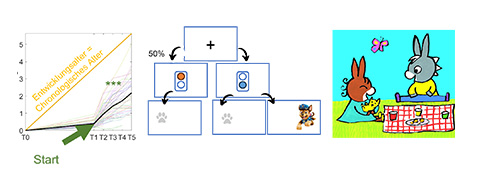FIVTI - Early Intensive Behavioral Therapy Intervention

Autism spectrum disorders (ASD) are often disabling disorders. Affected, untreated children are often barely able to attend school and achieve little independence in basic everyday skills. Many international studies have shown that intensive early intervention (IFI) can have a positive impact on the development of children with ASD. Children with ASD generally require lifelong care and are among the most complex and expensive residents in special educational homes.
With the Early Intensive Behavioural Therapy Intervention (FIVTI) used in the KJPP, it is possible in many cases to positively influence the child's development and ideally achieve integration into mainstream school. FIVTI is based on a programme that has been scientifically evaluated as effective, which is based on the therapy form of applied behaviour analysis (ABA) and is known internationally as EIBI (Early Intensive Behavioural Intervention). It is considered the standard treatment for young children with ASD in many countries.
We have further developed the FIVTI programme and are conducting a study on its effectiveness. The results show highly significant improvements, but the variance is very wide. In the next step, we are now trying to predict the success of the therapy based on individual cognitive perception processes, which we record using eye tracking.